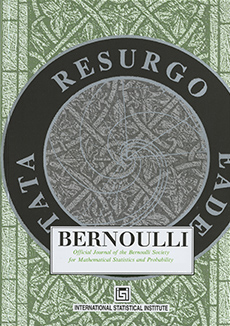Abstract
Isotropic positive definite functions on spheres play important roles in spatial statistics, where they occur as the correlation functions of homogeneous random fields and star-shaped random particles. In approximation theory, strictly positive definite functions serve as radial basis functions for interpolating scattered data on spherical domains. We review characterizations of positive definite functions on spheres in terms of Gegenbauer expansions and apply them to dimension walks, where monotonicity properties of the Gegenbauer coefficients guarantee positive definiteness in higher dimensions. Subject to a natural support condition, isotropic positive definite functions on the Euclidean space $\mathbb{R} ^{3}$, such as Askey’s and Wendland’s functions, allow for the direct substitution of the Euclidean distance by the great circle distance on a one-, two- or three-dimensional sphere, as opposed to the traditional approach, where the distances are transformed into each other. Completely monotone functions are positive definite on spheres of any dimension and provide rich parametric classes of such functions, including members of the powered exponential, Matérn, generalized Cauchy and Dagum families. The sine power family permits a continuous parameterization of the roughness of the sample paths of a Gaussian process. A collection of research problems provides challenges for future work in mathematical analysis, probability theory and spatial statistics.
Citation
Tilmann Gneiting. "Strictly and non-strictly positive definite functions on spheres." Bernoulli 19 (4) 1327 - 1349, September 2013. https://doi.org/10.3150/12-BEJSP06
Information





